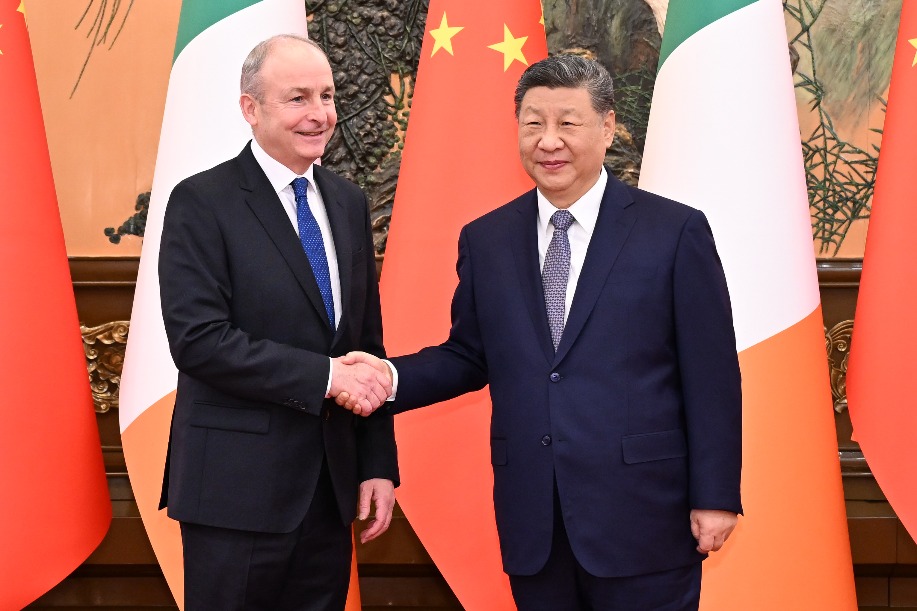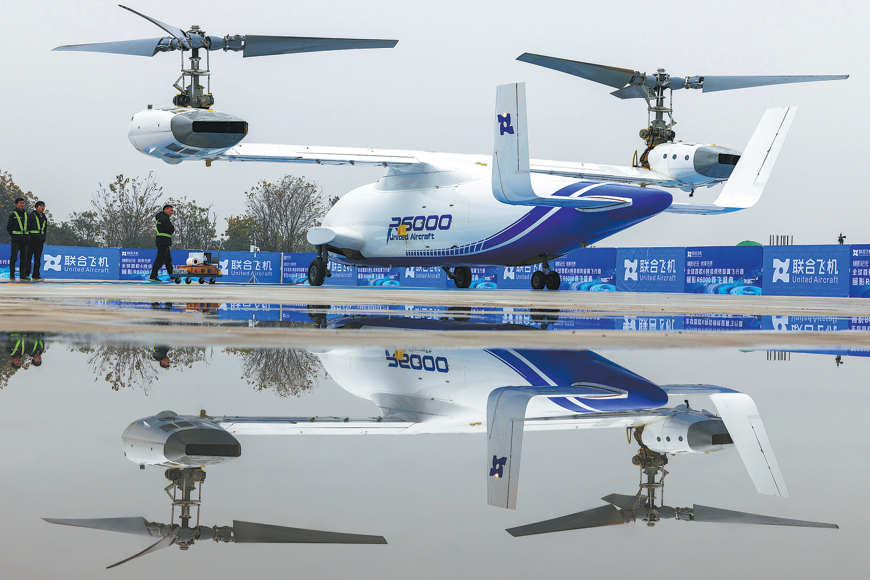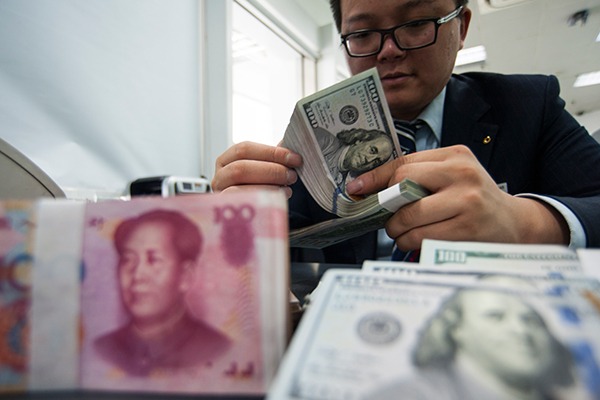Politics of trust


Cooperation during the pandemic can bring China and EU closer, laying a solid foundation to their post-pandemic relations
New problems have emerged in the economic and political relations between China and the European Union amid the novel coronavirus outbreak. The EU has been China's largest trading partner since 2004, 16 years in a row, while China is the EU's second-largest trading partner. After the pandemic, the EU's consumer demand may slump and the consumption of Chinese products will decline.
The protectionism already rearing its ugly head in the EU may become severer, for the head of the European Commission and politicians in countries such as Germany have warned against China's acquisition of foreign companies in Europe. The rise of EU protectionism is unfavorable for China-EU economic and trade cooperation, which will escalate economic and trade frictions and dampen the economic recovery of both sides. In the post-pandemic period, the EU may even seek decoupling from China's industrial chains.
The EU may also be more sensitive about its economic, technological and systemic competition with China. The document EU-China: A Strategic Outlook issued by the EU on March 12, 2019 claimed that China is not only an "economic competitor" but "a systemic rival promoting alternative models of governance", showing the lack of confidence of the EU in itself. China has provided much assistance to European countries during the pandemic, but this support has been distorted by some European media as action with a deeper motive. According to an article by Josep Borrell, the EU's high representative for foreign affairs and security policy, published on March 23, China's aid to Europe is part of China's efforts to gain geopolitical influence through the "politics of generosity". The EU may become more hypercritical of China's policies toward Europe and accuse the latter of trying to divide it through selective cooperation with its members.
However, the two sides have had some notable cooperation during the pandemic. Many European countries firmly supported China and donated a large number of supplies in late January this year when the pandemic peaked in the country. Since the pandemic began spreading through Europe in March, China has also sent medical expert groups and held videoconferences with many European countries to share its experience. The cooperation has contributed to the anti-pandemic battle for both sides and brought relations between the two sides closer, laying a solid foundation for China-Europe cooperation after the pandemic. It is not the mainstream view in Europe that China has ulterior motives behind its assistance.
Before the outbreak of the novel coronavirus, the world was already experiencing unprecedented uncertainties and instability. The United States, putting a premium on its own interests, has been promoting unilateralism and hegemony, which is the major cause of the accelerated global economic downturn, the collapse of the international trade order, prominent risks in the global financial system and crises in the Middle East. Affected by US unilateralism, China and European countries have developed the EU-China 2020 Strategic Agenda for Cooperation.
The US has further promoted its "America first" policy during the pandemic, announcing the travel ban from Europe to the US without informing its European allies and hijacking masks ordered by Germany. In the videoconferences of the G7, it focused only on seeking a scapegoat instead of cooperating with other countries in the anti-pandemic battle. The world may face greater crises after the pandemic because those countries facing an economic slowdown may resort to nationalism and protectionism if global coordination is not in place.
However, seeking benefits at the expense of other countries will not help the US improve its economy and may plunge the global economy into a recession. More conflicts and even wars in some regions are also likely to break out. Since the severe pandemic-induced impacts on the US may trigger financial crises and escalate social conflicts and battles between its political parties, the US government will seek to shift the impacts to the other parts of the world through the hegemony of the US dollar and its military forces. Therefore, China-EU cooperation is necessary in the post-pandemic period.
The EU is the world's largest community of developed countries, while China is the largest developing country. The combined GDP of China and the EU accounts for nearly one-third of the world's total. The two sides can exert greater global influence through cooperation. In recent years, China and the EU have shared common ground in maintaining the international trade order, objecting to the US abuse of its currency hegemony and long-arm jurisdiction, coping with the effects of climate change and guarding multilateralism.
In the post-pandemic period, all countries will face greater economic and social difficulties. China and European countries need to improve their cooperation to overcome the difficulties and accelerate economic recovery, with which the two sides can act as role models for win-win cooperation and drive global solidarity and collaboration. According to Chinese President Xi Jinping in telephone talks with European leaders, China and Europe need to "improve coordination on macroeconomic policies, stabilize market performances, maintain economic growth, improve people's well-being, and ensure the opening, stability and safety of the global supply chain".
The pandemic has exposed the weak points of global governance, especially with regard to public health. China and European countries need to improve their mutual understanding and trust, enhance cooperation on health and support the United Nations and the World Health Organization. In the post-pandemic period, the two sides need to jointly improve the international multilateral mechanisms, enhance global governance and drive international cooperation.
Although the pandemic has disrupted the settled agenda of China-EU cooperation in 2020 and posed challenges, it has created new opportunities for China-Europe cooperation. China has provided consistent support for European integration. If European countries can place more trust in China and avoid groundless suspicions, China-Europe cooperation, which benefits both and the world, will see broader prospects.
The author is director of the Institute of European Studies at the China Institutes of Contemporary International Relations. The author contributed this article to China Watch, a think tank powered by China Daily. The views do not necessarily reflect those of China Daily.

































